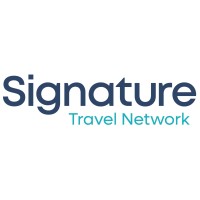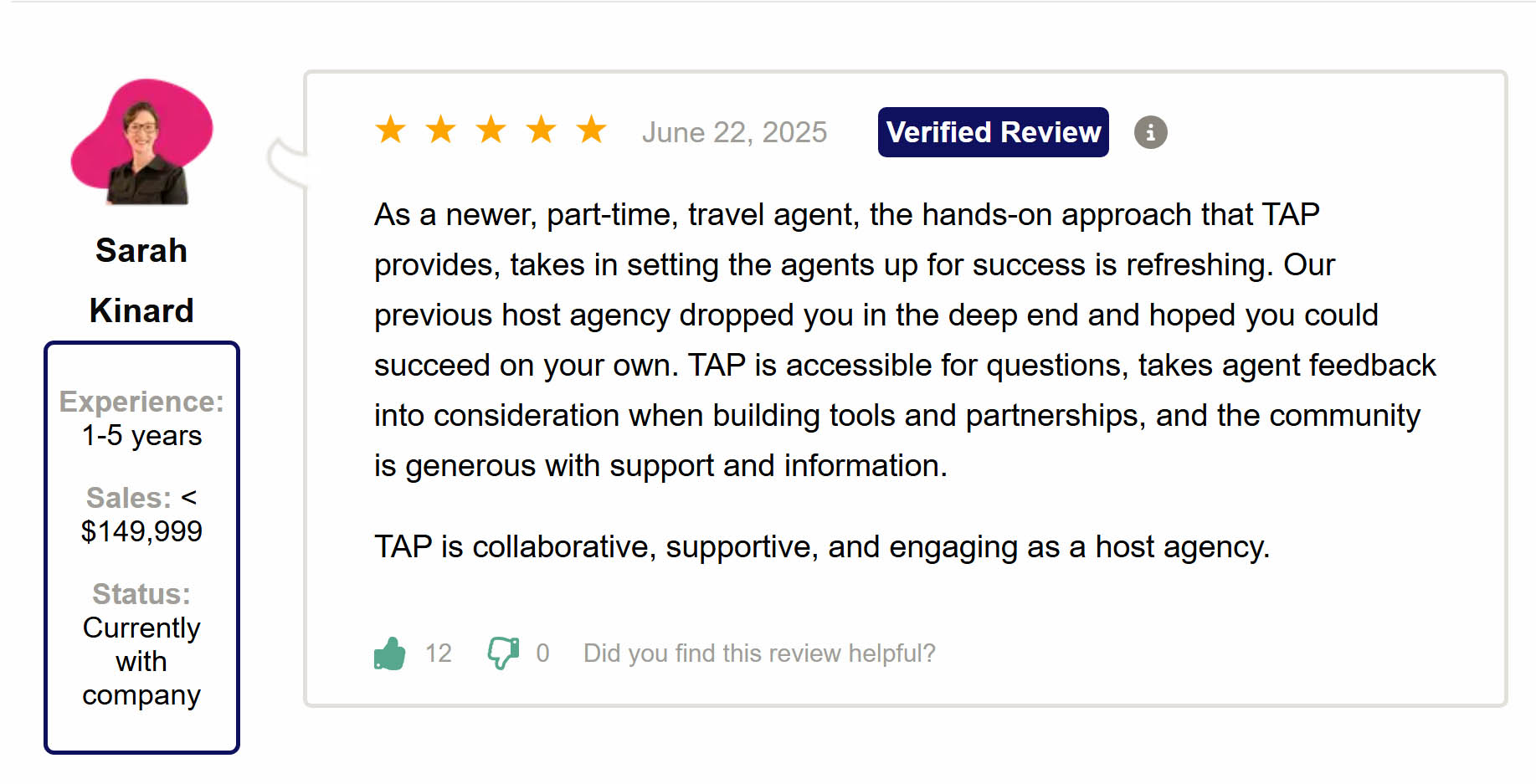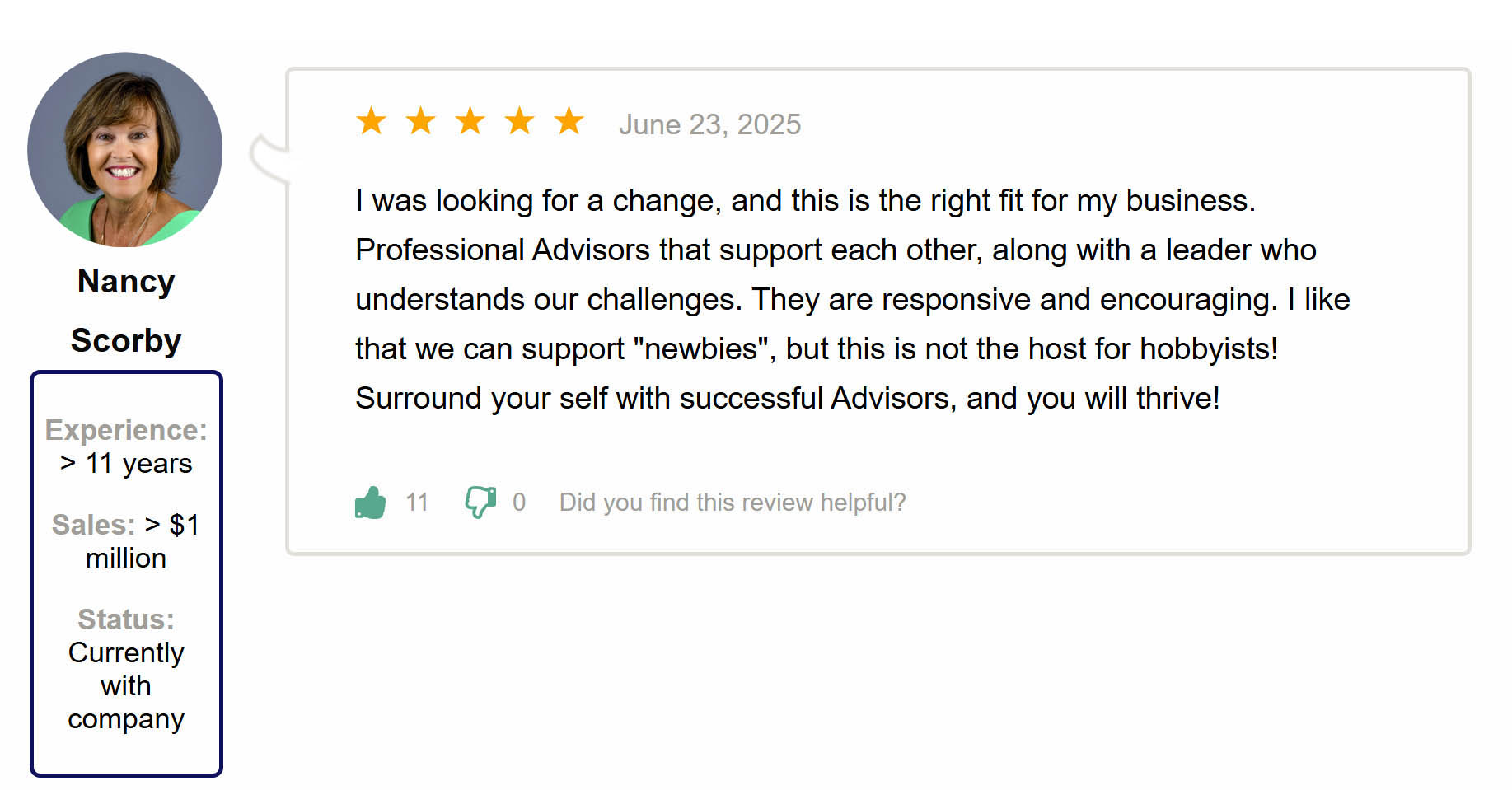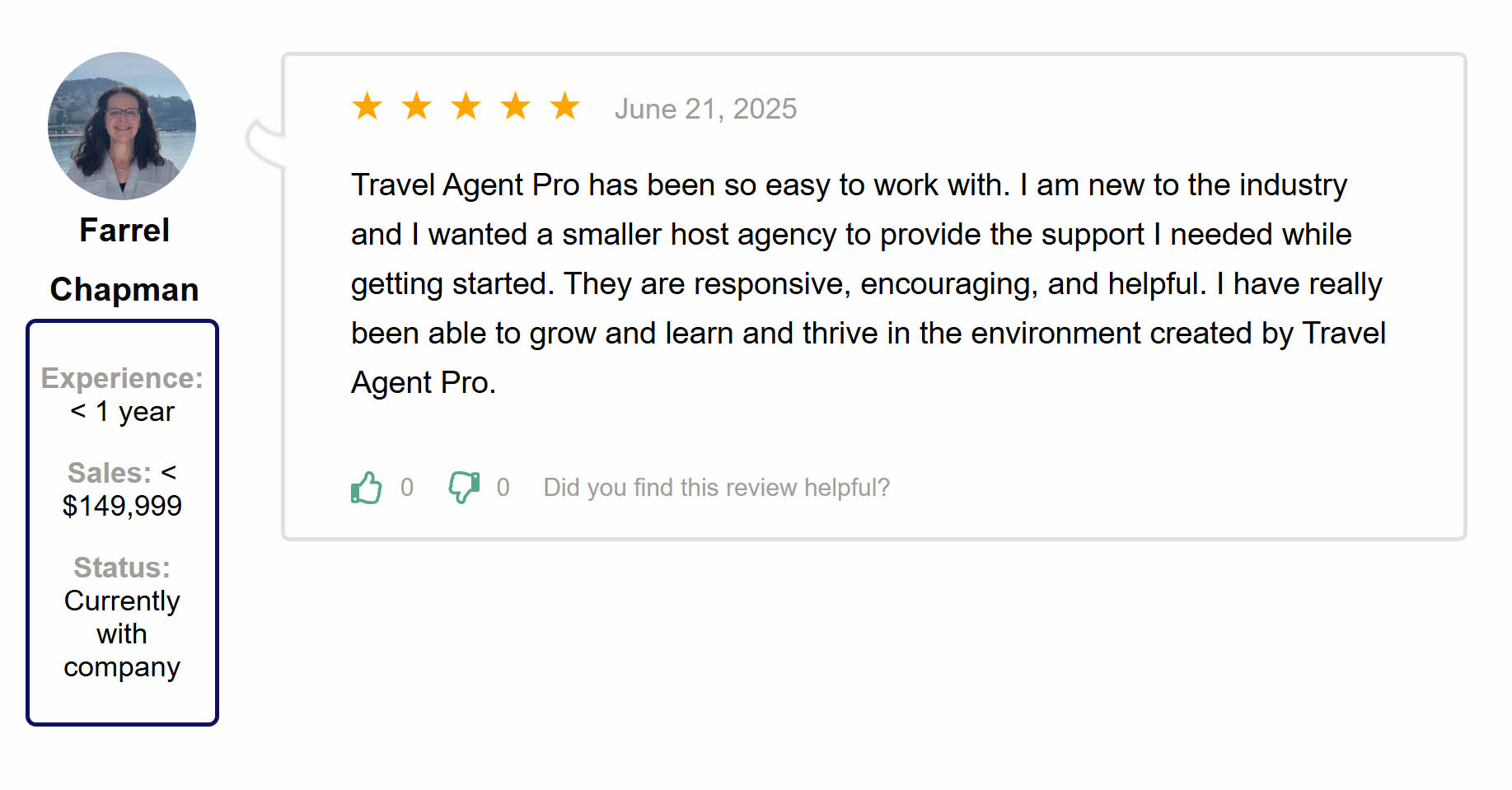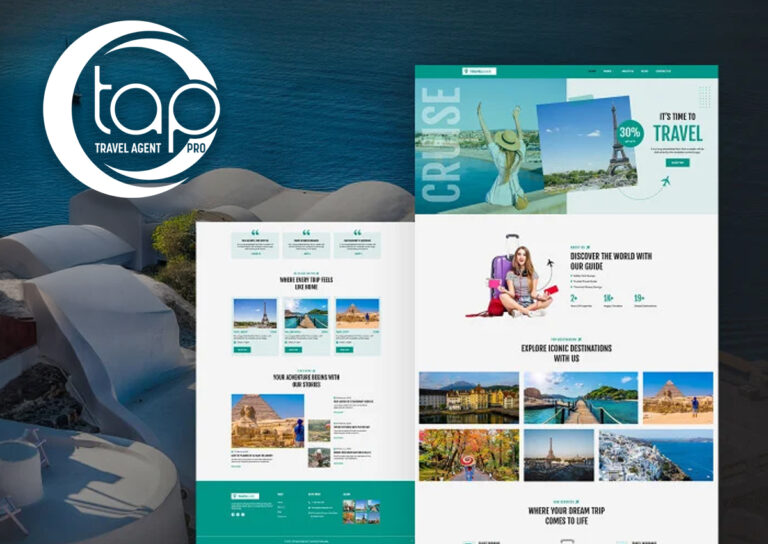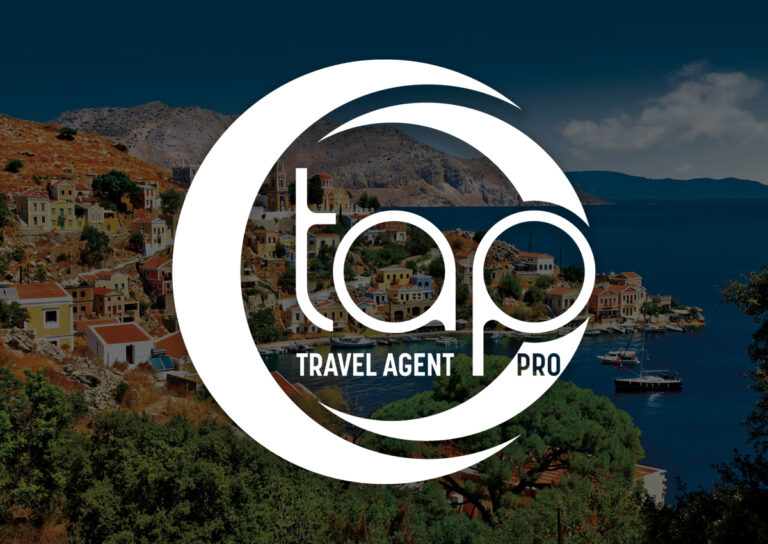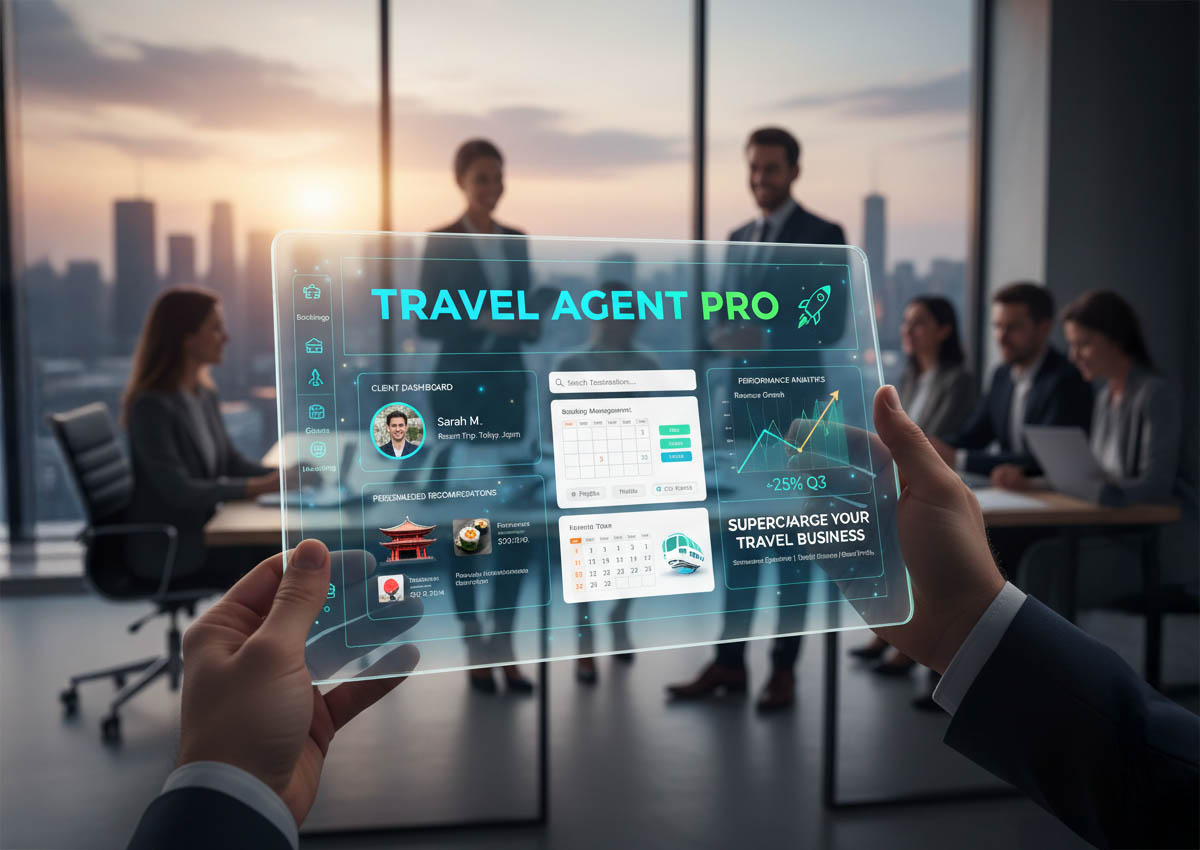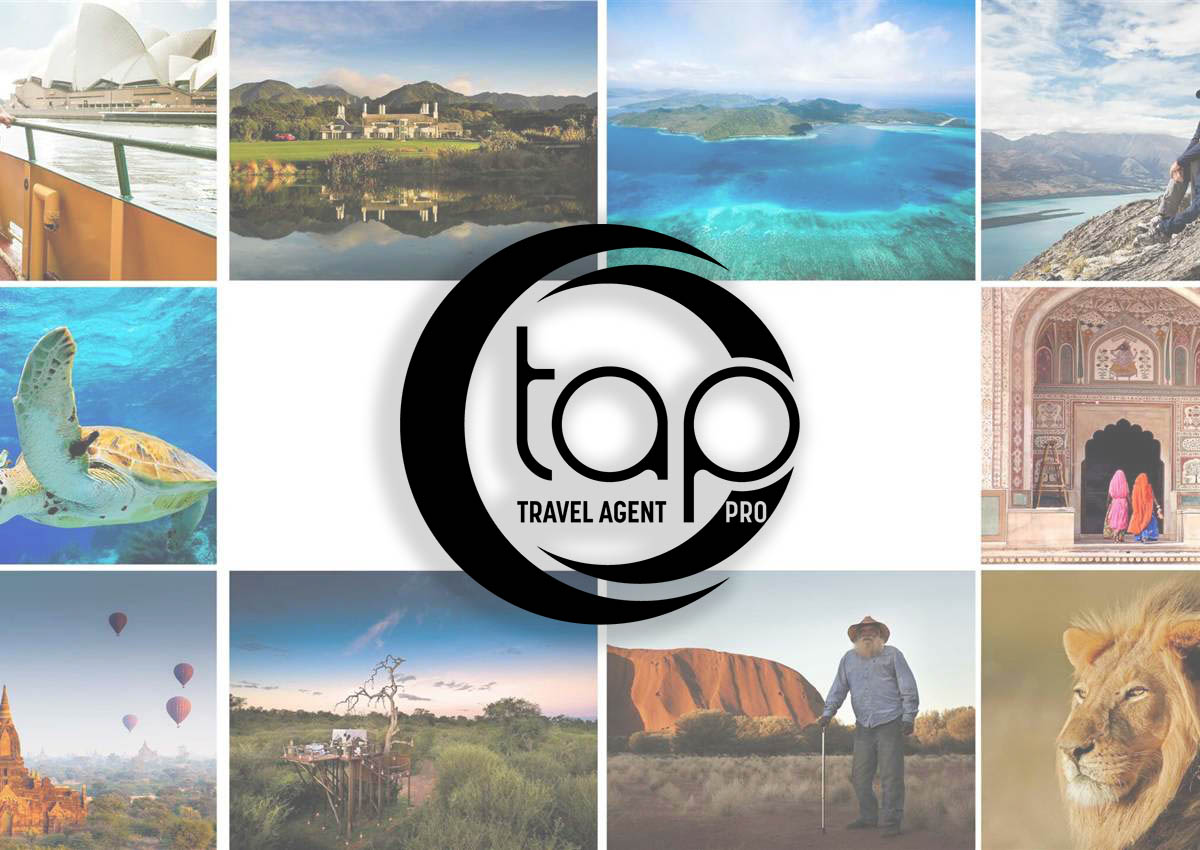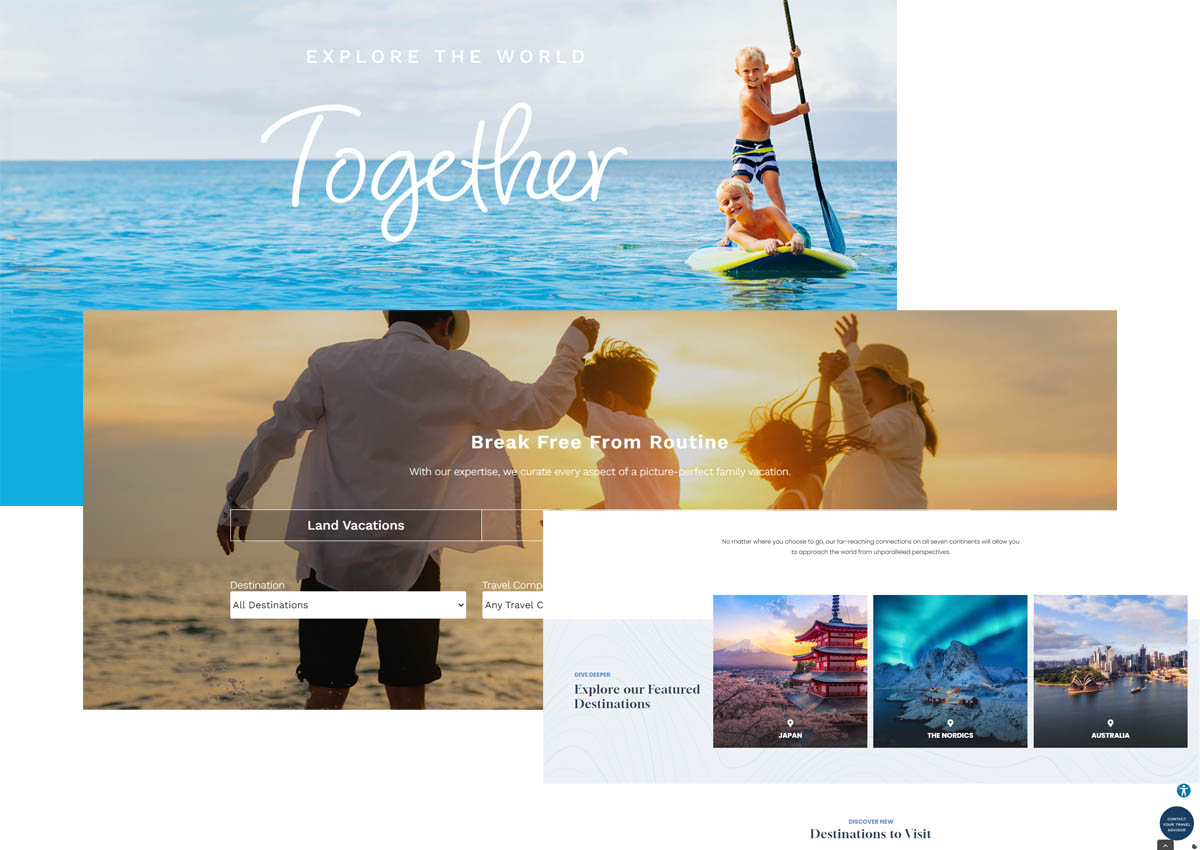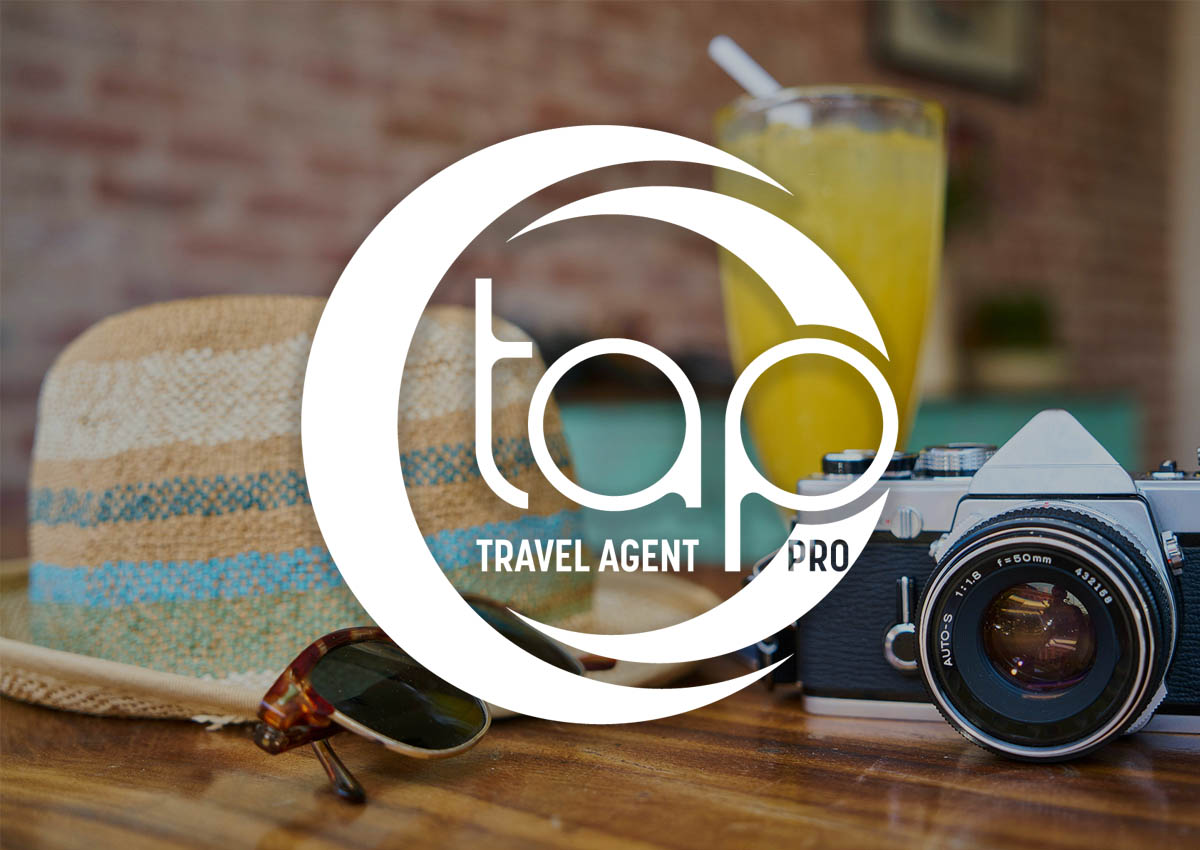Category :
Business Strategy & OperationsThe Secret to Mega-Growth as a Travel Advisor
To learn more techniques and how to create and grow your own travel business, sign-up to become a member today!

As a travel host business, we understand the importance of continuous growth and development in the travel industry.
Whether you are an experienced travel agent or just starting out, investing in yourself is crucial for the success of your travel business. In this guide, we will explore the key strategies and practices that can help travel advisors grow their businesses effectively.
Let's get started!
Expand Your Niche Offerings
To stand out in the competitive travel industry, it is crucial to research trending travel niches. Identifying areas such as eco-tourism, culinary travel, or adventure tourism can help you tap into specific markets that are gaining popularity. For instance, eco-tourism is becoming increasingly popular as travelers seek sustainable and environmentally friendly travel options. By understanding these trends, you can tailor your services to meet the demands of these niche markets and attract a dedicated client base.
Specializing in specific types of travel or destinations is another effective strategy. This involves focusing on a particular segment of the travel market where you can develop deep expertise and offer unique services. For example, you might specialize in luxury travel, family vacations, or destination-specific travel such as Japan or Italy. By specializing, you can differentiate your business from general travel providers and attract clients who are seeking specialized knowledge and services.
Developing expertise in niche areas is essential for building credibility and attracting clients. This means staying updated on the latest trends, best practices, and local knowledge within your chosen niche. For instance, if you specialize in culinary travel, you should have a deep understanding of local cuisine, cooking techniques, and the best culinary experiences available in your destinations. This expertise can be showcased through blogs, social media, and client interactions, helping to establish your business as a trusted authority in the niche.
Specializing in a niche allows you to offer unique and tailored services that cater to the specific needs and interests of your clients. This not only differentiates your business but also builds trust and loyalty.
By specializing in a niche, you can also create targeted marketing campaigns that resonate with your specific audience.
For example, if you specialize in adventure tourism, you can create content that highlights the adrenaline-pumping activities and breathtaking landscapes that appeal to adventure seekers. This focused approach ensures that your marketing efforts are more effective and engaging for your target audience.
| Niche Area | Description |
|---|---|
| Eco-Tourism | Sustainable and environmentally friendly travel options. |
| Culinary Travel | Travel focused on local cuisine and culinary experiences. |
| Adventure Tourism | Travel that includes adrenaline-pumping activities and outdoor adventures. |
| Luxury Travel | High-end travel experiences including luxury accommodations and exclusive services. |
Your Host Travel Agency
Launched by industry veterans, Travel Agent Pro is working to carve out a niche as a boutique, community-driven option designed by advisors, for advisors.
Learn MoreBy researching trending niches, specializing in specific types of travel, and developing expertise in these areas, you can position your travel business as a leader in the industry and attract a loyal client base.
Utilize social media and content marketing to showcase your expertise and the unique experiences you offer. For example, you can create engaging content such as destination guides, travel tips, and insider stories that highlight your niche offerings. This not only educates potential clients but also builds trust and credibility in your business.
Additionally, collaborating with influencers and local businesses within your niche can further enhance your offerings and reach. For instance, partnering with local chefs for culinary travel or with outdoor guides for adventure tourism can provide authentic and exclusive experiences that set your business apart.

Offer Special Deals and Incentives
Offering special deals and incentives can attract new clients and retain existing ones. Promote unique travel experiences and exclusive packages that provide value beyond what competitors offer. Encourage referrals and loyalty programs to foster a loyal client base.
Investing in yourself and your business is a continuous process. By setting clear goals, building a robust business plan, curating customized packages, and leveraging technology and partnerships, you can significantly grow your travel business.
Remember, the key to success lies in providing exceptional customer service, staying updated on industry trends, and continuously innovating your services to meet the evolving needs of your clients.
Establish Clear Business Goals and Objectives
To lay the foundation for a successful travel business, it is crucial to define your target market and client base. Understanding who your ideal clients are will help you tailor your services and marketing efforts to meet their specific needs. This involves conducting market research to identify demographics, preferences, and travel behaviors. For instance, you might focus on families, couples, or adventure seekers, each with their unique set of requirements and expectations.
Once you have a clear understanding of your target market, you need to set specific, measurable, and achievable goals. These goals should be aligned with your overall vision and mission. For example, your goals might include increasing your client base by a certain percentage within a year, enhancing customer satisfaction ratings, or expanding your service offerings to include new destinations or types of travel. Setting SMART (Specific, Measurable, Achievable, Relevant, Time-bound) goals ensures you have a roadmap for your business growth and can track your progress effectively.
Developing a long-term vision for your travel business is essential for sustained growth and success. This vision should reflect your business’s mission, values, and long-term objectives. It serves as a guiding light that helps you make strategic decisions and stay focused on what you aim to achieve. A long-term vision might include becoming a leading travel business in a specific niche, expanding globally, or being recognized for excellence in customer service. By having a clear vision, you can align all your short-term goals and strategies towards achieving this broader objective.
A well-defined target market and clear goals are the pillars of a successful travel business. They help you stay focused, make informed decisions, and ensure that every effort is directed towards achieving your business objectives.
By establishing these clear business goals and objectives, you create a solid foundation for your travel business. This clarity will guide your daily operations, marketing strategies, and long-term planning, ensuring that your business is always moving in the right direction.

Build a Robust Business Plan
To build a robust business plan for your travel business, it is essential to start with a thorough market analysis and competitive study. This involves researching the broader travel industry, identifying current trends, and understanding customer preferences. Analyze your competitors to uncover their strengths, weaknesses, and strategies. This will help you identify gaps in the market and opportunities to differentiate your services. For instance, you might discover that there is a lack of specialized travel packages for families or adventure seekers, which you can then capitalize on.
A key component of your business plan is to outline sales and revenue projections. This section should include forecasts of your potential revenue, based on market research and industry trends. Break down your revenue streams, such as income from bookings, travel packages, and any additional services you offer. Also, include profit and loss projections to give a comprehensive view of your financial health. For example, if you specialize in luxury weddings, you might expect an increase in revenue during the summer months when more weddings occur.
Detailed marketing and operational strategies are crucial for the success of your travel business. Your marketing strategy should outline how you plan to reach your target audience, including the use of social media, advertising channels, and promotional tactics. Highlight your unique selling proposition (USP) and how it sets you apart from competitors. For instance, you might emphasize personalized customer service, exclusive access to unique destinations, and 24/7 customer support.
In the operational strategies section, describe the day-to-day functions of your travel business. This includes staffing, how bookings are managed, customer service protocols, and the technology used to streamline operations. Discuss your relationships with suppliers, such as hotels and airlines, and how these partnerships benefit your clients. Also, outline safety measures and risk management strategies to ensure smooth and safe travel experiences for your clients.
A robust business plan is the foundation of a successful travel business. It helps you understand the market, set realistic financial goals, and develop effective marketing and operational strategies.
By conducting a thorough market analysis, outlining clear sales and revenue projections, and detailing your marketing and operational strategies, you can create a business plan that guides your travel business towards sustained growth and success.
| Component | Description |
|---|---|
| Market Analysis | Research industry trends, customer preferences, and competitive landscape. |
| Sales and Revenue Projections | Forecast revenue streams and include profit and loss projections. |
| Marketing Strategies | Outline tactics to reach the target audience and highlight your USP. |
| Operational Strategies | Describe day-to-day operations, staffing, and technology used. |
Using tools like Global Distribution Systems (GDS) for booking flights, hotels, and car rentals, and Customer Relationship Management (CRM) Software for handling client data, can significantly enhance your operational efficiency and customer interaction.

Curate Customized Travel Packages
To curate customized travel packages, it is essential to start by conducting client interviews to understand their preferences. This involves direct communication with your clients to gather information about their interests, travel style, and any specific needs or preferences they may have. By understanding what makes each client unique, you can tailor your services to provide a distinct and exceptional experience. For instance, a couple who loves history might be interested in a detailed tour of historical landmarks, while a family with young children might prefer a more relaxed itinerary with kid-friendly activities.
Once you have a clear understanding of your clients' preferences, you can create tailored itineraries and unique experiences. This means designing a travel package that aligns perfectly with their interests and budget. A personalized tour could include activities such as exploring hidden gems, enjoying local cuisine, or participating in exclusive cultural events. Unlike generic travel packages, these tailored itineraries ensure that every aspect of the trip is customized to meet the client's specific needs. For example, if a client is passionate about art, you could arrange a private tour of local art galleries or even a workshop with a local artist.
Highlighting local and exclusive attractions is another key aspect of curating customized travel packages. This involves leveraging your local expertise to provide clients with access to unique experiences that they might not find on their own. This could include private tours of local landmarks, exclusive access to events, or even stays in boutique hotels or private villas. By emphasizing these exclusive attractions, you can make the travel experience more memorable and satisfying for your clients. For instance, instead of visiting a crowded tourist site, you could arrange for a private guided tour at a less busy time, ensuring a more intimate and enjoyable experience.
Customized travel packages are about more than just booking flights and hotels; they are about creating a unique and enriching experience that caters to each client's individual preferences.
By taking the time to understand client preferences, creating tailored itineraries, and highlighting local and exclusive attractions, you can offer travel packages that stand out from the generic offerings of other travel agencies. This personalized approach not only enhances customer satisfaction but also fosters loyalty and encourages repeat business.
| Aspect | Description |
|---|---|
| Client Interviews | Gather information about clients' interests, travel style, and specific needs. |
| Tailored Itineraries | Design travel packages that align with clients' interests and budget. |
| Local and Exclusive Attractions | Provide access to unique experiences and exclusive attractions. |
Using these strategies, you can ensure that each travel package is a reflection of the client's unique preferences, making their travel experience truly special and memorable.
Enhance Customer Communication
To build strong and lasting relationships with your clients, it is crucial to utilize text marketing and messaging tools. These tools enable you to keep your clients informed and engaged throughout their travel planning process. For instance, you can use SMS or messaging apps to send reminders about upcoming trips, provide travel tips, or share important updates about their itinerary. This real-time communication helps in building trust and ensures that your clients feel well-informed and supported.
Streamlining client interactions and updates is another vital aspect of enhancing customer communication. This involves implementing systems that make it easy for clients to get the information they need quickly and efficiently. Use customer relationship management (CRM) software to manage client interactions, track communication history, and automate routine updates. For example, you can set up automated email or SMS notifications for flight confirmations, hotel bookings, or any changes in the travel schedule. This streamlined approach ensures that clients receive timely and relevant information, reducing confusion and enhancing their overall experience.
Ensuring prompt and personalized responses to client inquiries is essential for maintaining high levels of customer satisfaction. This means having a dedicated customer service team that is available to answer questions and address concerns promptly. Personalize your responses by addressing clients by their names and tailoring your communication to their specific needs and preferences. For instance, if a client has a special request or concern, make sure to acknowledge it and provide a solution that meets their expectations. This personalized approach shows that you value your clients and are committed to providing them with the best possible service.
Effective communication is the heart of any successful travel business. By utilizing the right tools, streamlining interactions, and ensuring prompt and personalized responses, you can build strong relationships with your clients and set your business apart.
Using technology to your advantage can also enhance customer communication. For example, you can implement chatbots or live chat features on your website to provide immediate support to clients. These tools can answer common questions, help with basic inquiries, and even route more complex issues to human customer support agents. This ensures that clients get the help they need quickly and efficiently.
| Tool/Strategy | Description |
|---|---|
| Text Marketing and Messaging Tools | Use SMS or messaging apps to send reminders and updates. |
| Streamlined Client Interactions | Use CRM software to manage client interactions and automate updates. |
| Prompt and Personalized Responses | Ensure timely and personalized responses to client inquiries. |
Incorporating user-friendly interfaces and clear communication channels can significantly improve the client experience. For instance, you can create a client portal where they can access all their travel documents, itineraries, and communication history in one place. This centralized approach makes it easier for clients to manage their travel plans and stay informed about any updates or changes.
By focusing on these aspects of customer communication, you can enhance the overall experience for your clients, build stronger relationships, and ultimately drive more repeat business and referrals.
Become a Travel Agent: Unleash Your Full Potential
Ready for a career that's as fulfilling as it is rewarding? Becoming a travel agent with TAP means building a business around your passion for travel.

Foster Local and Industry Partnerships
To foster strong and beneficial relationships for your travel business, it is essential to collaborate with accommodation providers and tour operators. These partnerships can enhance your service offerings and provide your clients with a more comprehensive and seamless travel experience. For instance, working closely with hotels and resorts can allow you to offer exclusive room rates, early check-in options, or other perks that make your clients' stays more enjoyable. Similarly, partnering with tour operators can give you access to a wide range of activities and tours that you can include in your travel packages, making them more attractive and diverse.
Negotiating special deals and exclusive experiences is a key aspect of these partnerships. By building strong relationships with your partners, you can secure unique benefits that you can pass on to your clients. This might include access to sold-out events, private tours, or exclusive dining experiences. For example, you could negotiate a special discount for your clients at a luxury hotel or arrange for a private guided tour of a popular attraction. These special deals and exclusive experiences not only enhance the value of your travel packages but also make them more appealing and memorable for your clients.
Partnering with complementary businesses and travel suppliers can further expand your service offerings and add value to your clients' travel experiences. This could include partnerships with local restaurants, transportation services, or activity providers. For instance, you might partner with a local restaurant to offer your clients a complimentary dining experience or work with a transportation service to provide seamless airport transfers. These partnerships not only enhance the convenience and quality of the travel experience but also support the local community, which can be a selling point for clients who value sustainable and community-friendly travel.
Building strong partnerships with local and industry stakeholders is crucial for offering unique and enhanced travel experiences. These collaborations can differentiate your business and provide significant value to your clients.
Utilizing these partnerships, you can also create bundled packages that include multiple services and experiences. For example, you could offer a package that includes a hotel stay, guided tours, and local dining experiences, all arranged through your partnerships. This not only simplifies the booking process for your clients but also ensures that every aspect of their trip is well-coordinated and enjoyable.
| Partnership Type | Description |
|---|---|
| Accommodation Providers | Collaborate with hotels and resorts to offer exclusive rates and perks. |
| Tour Operators | Partner with tour operators to include a variety of activities and tours in your packages. |
| Complementary Businesses | Partner with local businesses such as restaurants, transportation services, and activity providers. |
Your Host Travel Agency
Launched by industry veterans, Travel Agent Pro is working to carve out a niche as a boutique, community-driven option designed by advisors, for advisors.
Learn MoreBy fostering these local and industry partnerships, you can create a network of relationships that enrich your travel offerings and provide your clients with unforgettable experiences. This approach not only enhances customer satisfaction but also helps in building a loyal client base and attracting new customers through positive word-of-mouth and referrals.
Provide Expert Advice and Insider Tips
To establish your travel business as a trusted and authoritative source, it is crucial to use blogs and email newsletters for sharing tips. These platforms allow you to share valuable information, travel advice, and insider tips that can help potential clients make informed decisions about their travel plans. For instance, you can write blog posts on destination guides, travel trends, and tips for navigating different cultures. Email newsletters can be used to send regular updates, special offers, and exclusive content to your subscribers, keeping them engaged and informed.
Offering destination-specific advice and itinerary suggestions is another effective way to provide expert advice. This involves creating detailed guides for various destinations, including recommendations for must-see attractions, local cuisine, and hidden gems. By sharing your expertise, you can help clients plan their trips more effectively and ensure they have a memorable experience. For example, you might write a blog post on the best time to visit a particular destination, how to get around, and what local customs to respect.
Sharing packing lists and travel essentials can also be incredibly helpful for your clients. This practical advice can make a significant difference in their travel preparation and overall experience. You can create downloadable packing lists, checklists for travel documents, and tips on what to bring for different types of trips. For instance, if you specialize in adventure travel, you could provide a list of essential gear and safety tips for activities like hiking or diving.
Providing expert advice and insider tips not only builds trust with your clients but also positions your business as a go-to resource for travel planning.
Utilizing storytelling techniques in your blogs and newsletters can make your content more engaging and relatable. Share personal travel experiences, highlight customer testimonials, and include vivid descriptions of destinations to inspire your readers. This approach helps to create an emotional connection with your audience and makes your advice more compelling and trustworthy.
| Content Type | Description |
|---|---|
| Blogs and Email Newsletters | Share travel tips, destination guides, and insider advice through regular blog posts and newsletters. |
| Destination-Specific Advice | Provide detailed guides and itinerary suggestions for various destinations. |
| Packing Lists and Travel Essentials | Offer practical advice on what to pack and essential items to bring for different types of trips. |
By leveraging social media, you can also share quick tips and advice in a more interactive and engaging way. Use platforms like Instagram, Facebook, and Twitter to share bite-sized travel advice, behind-the-scenes content, and user-generated posts. This helps to keep your audience engaged and informed on a daily basis.
Additionally, consider hosting webinars or live Q&A sessions where you can provide expert advice and answer questions in real-time. This interactive approach allows you to connect directly with your clients, address their concerns, and build a stronger relationship with them.
Encouraging customer feedback and testimonials is another way to enhance your expert advice. By sharing real-life experiences and feedback from satisfied clients, you can build credibility and trust with potential clients. Use this feedback to refine your advice and ensure it is relevant and useful to your audience.

Engage New Clients and Scale Your Business
To effectively engage new clients and scale your travel business, it is crucial to understand current market needs and develop innovative strategies. This involves staying abreast of the latest trends and consumer behaviors in the travel industry. Conduct market research to identify what potential clients are looking for in a travel experience, such as sustainable tourism, unique local experiences, or luxury travel. By understanding these needs, you can develop strategies that cater to them and set your business apart from competitors. For instance, if there is a growing demand for eco-tourism, you could create specialized packages that focus on environmentally friendly travel options.
Crafting compelling marketing messages and visuals is essential for capturing the attention of new clients. Your marketing messages should be clear, engaging, and tailored to your target audience. Use storytelling techniques to paint vivid pictures of the destinations and experiences you offer. High-quality images and videos can also play a significant role in inspiring potential travelers. For example, create destination guides that include stunning visuals, local insights, and personal anecdotes to make the travel experience feel more real and appealing.
Optimizing SEO and marketing campaigns across all channels is vital for reaching a wider audience and driving more bookings. Ensure your website is optimized for search engines by using relevant keywords, meta descriptions, and high-quality content. Utilize pay-per-click (PPC) advertising on search engines to capture potential clients who are actively searching for travel options. Additionally, leverage social media platforms to run targeted ads and engage with your audience. For instance, use Facebook and Instagram ads to reach specific demographics and interests, and employ remarketing strategies to re-engage with visitors who have shown interest but haven’t converted yet.
Understanding market needs, crafting compelling marketing messages, and optimizing SEO and marketing campaigns are the pillars of engaging new clients and scaling your travel business.
Utilizing social media platforms effectively can also help in engaging new clients. Choose the most suitable platforms for your target audience and create content that resonates with them. For example, if you target younger travelers, Instagram and TikTok might be more effective, while Facebook and LinkedIn could be better for targeting older or corporate clients. Use social media management tools to plan and measure the effectiveness of your campaigns, ensuring you are reaching and engaging your audience efficiently.
| Strategy | Description |
|---|---|
| Understand Market Needs | Conduct market research to identify current trends and consumer behaviors. |
| Compelling Marketing Messages | Create clear, engaging messages and use storytelling techniques to inspire potential travelers. |
| Optimize SEO and Marketing | Ensure website SEO, use PPC advertising, and leverage social media for targeted ads and engagement. |
Incorporating user-generated content into your marketing strategy can also be highly effective. Encourage satisfied clients to share their travel experiences, photos, and videos on your social media channels. This not only provides social proof but also helps in building trust and credibility with potential clients. For example, you can create a branded hashtag and ask clients to use it when sharing their travel stories, turning them into valuable brand ambassadors.
By focusing on these strategies, you can not only attract new clients but also ensure that your travel business continues to grow and thrive in a competitive market.
Additionally, consider hosting webinars or live Q&A sessions to engage with potential clients directly. These interactive sessions can provide valuable insights, answer questions, and build trust, ultimately driving more bookings and referrals.
Leverage Technology and Online Presence
To effectively grow your travel business, it is essential to create a professional and SEO-optimized website. Your website serves as the digital face of your business, and it must be user-friendly, visually appealing, and optimized for search engines. Ensure that your website is mobile-responsive, as a significant portion of users will access it through their mobile devices. Use relevant keywords, meta descriptions, and high-quality content to improve your search engine rankings. For instance, include detailed destination guides, travel tips, and client testimonials to provide valuable information and enhance your SEO standing.
A well-designed website should also offer a seamless user experience. This includes easy navigation, clear calls-to-action, and a secure booking system. By making it simple for clients to find information and book their trips, you can improve conversion rates and enhance customer satisfaction. Additionally, consider integrating customer relationship management (CRM) software to manage client interactions and automate routine tasks.
Using social media platforms for customer interaction and marketing is another crucial aspect of leveraging technology. Choose the platforms that your target audience uses most frequently and create content that engages and inspires them. Share stunning visuals, destination guides, and insider tips to captivate your audience. Utilize social media management tools to plan and measure the effectiveness of your campaigns. For example, you can create a YouTube channel for immersive videos, post awe-inspiring photos on Instagram, and engage with your audience through Facebook and Twitter.
A strong online presence is vital for attracting and retaining clients in the digital age. By creating a professional website and leveraging social media, you can reach a wider audience and build a loyal client base.
Encourage client engagement on social media by sharing user-generated content and creating branded hashtags. For instance, you could create a hashtag like #TravelWithUs and encourage clients to share their travel experiences using this tag. This not only fosters a sense of community but also provides valuable social proof and authenticity.
In addition to your website and social media, utilize affiliate marketing and cross-promotions to expand your reach. Partner with other travel-related businesses to offer bundled services or exclusive deals. For example, you could partner with a hotel chain to offer special rates or with a tour operator to include exclusive tours in your packages. Affiliate marketing can also help you earn commissions by promoting other travel services through your website or social media channels.
| Strategy | Description |
|---|---|
| Professional and SEO-Optimized Website | Create a user-friendly, visually appealing, and SEO-optimized website that is mobile-responsive. |
| Social Media Platforms | Use social media for customer interaction and marketing, sharing engaging content and utilizing social media management tools. |
| Affiliate Marketing and Cross-Promotions | Partner with other travel-related businesses to offer bundled services or exclusive deals and utilize affiliate marketing. |
Investing in innovative technologies such as virtual reality (VR) can also enhance your online presence. VR allows potential clients to take immersive virtual tours of destinations, hotels, and experiences, making their travel decisions more informed and engaging. This technology can be integrated into your website and social media channels to provide a unique and captivating experience for your audience.
By leveraging these technological and online strategies, you can significantly enhance your travel business, attract more clients, and provide a superior customer experience.

Network and Build Industry Relationships
To grow your travel business, it is essential to join professional associations and attend industry conferences. These platforms provide valuable opportunities to connect with other travel professionals, stay updated on industry trends, and learn about best practices. Joining associations like the American Society of Travel Advisors (ASTA) or the International Air Transport Association (IATA) can offer you access to resources, training, and networking events that can significantly benefit your business. Attending conferences and trade shows allows you to meet potential partners, learn about new destinations and services, and showcase your own offerings to a broader audience.
Participating in online forums and networking events is another effective way to build industry relationships. Online forums such as travel agent communities on LinkedIn or Facebook groups dedicated to travel professionals can be great places to share knowledge, ask questions, and collaborate with others. These platforms allow you to connect with a global network of travel agents, share resources, and stay informed about industry developments. Additionally, virtual networking events and webinars can provide similar benefits without the need for physical attendance.
Collaborating with other travel agents and sharing resources can also be highly beneficial. By forming alliances with other travel agencies or independent agents, you can share knowledge, best practices, and even client referrals. This collaborative approach can help you fill gaps in your service offerings and provide a more comprehensive experience for your clients. For instance, if you specialize in one type of travel but have a client interested in another, you can refer them to a trusted partner and vice versa. This mutual support system can enhance your reputation and expand your network of contacts.
Building strong industry relationships is key to growing your travel business. By joining professional associations, participating in online forums, and collaborating with other agents, you can tap into a wealth of knowledge, resources, and opportunities.
Utilizing social media to connect with other travel professionals can also be very effective. Use platforms like LinkedIn to connect with other agents, suppliers, and industry leaders. Share your expertise, engage in discussions, and participate in relevant groups to build your network and reputation within the industry.
| Strategy | Description |
|---|---|
| Join Professional Associations | Join associations like ASTA or IATA to access resources, training, and networking events. |
| Attend Industry Conferences | Attend conferences and trade shows to connect with other professionals and stay updated on industry trends. |
| Participate in Online Forums | Engage in online communities and forums to connect with a global network of travel agents and share resources. |
| Collaborate with Other Travel Agents | Form alliances with other travel agencies or independent agents to share knowledge, best practices, and client referrals. |
By actively participating in these networking activities, you can build a strong support network within the travel industry. This network can provide you with valuable insights, resources, and opportunities that can help you grow your business and provide better services to your clients.
In addition to these strategies, consider hosting or participating in local travel events and workshops. These events can be great opportunities to connect with potential clients and other industry professionals in a more personal setting. For example, you could host a travel fair or workshop where you provide travel tips and destination guides, and also network with other agents and suppliers.
Offer Special Deals and Incentives
To attract new clients and retain existing ones, it is crucial to promote unique travel experiences and exclusive packages. These special offers can set your travel business apart from competitors and provide significant value to your clients. For instance, you could create packages that include exclusive access to local events, private tours, or unique cultural experiences. Highlighting these unique aspects in your marketing campaigns can make your travel packages more appealing and memorable. Use compelling visuals and descriptive content to showcase these experiences, and ensure that your website and social media channels are updated with the latest offers.
Encouraging referrals and loyalty programs is another effective strategy to grow your travel business. Implement a referral program that rewards clients for referring friends and family. This could include discounts on future trips, free upgrades, or other exclusive benefits. Loyalty programs can also be designed to reward repeat clients, such as offering points or miles that can be redeemed for travel services. By incentivizing referrals and loyalty, you can foster a loyal client base and encourage positive word-of-mouth, which is a powerful marketing tool.
Participating in trade shows and industry events is a great way to showcase your special deals and incentives to a broader audience. These events provide opportunities to connect with potential clients, industry partners, and other travel professionals. Use these platforms to promote your unique travel experiences, distribute marketing materials, and engage in face-to-face interactions that can lead to new bookings and partnerships. For example, you could offer exclusive discounts or packages to attendees who book a trip on the spot, making the event a lucrative opportunity for both you and your potential clients.
Offering special deals and incentives is a powerful way to attract and retain clients. By promoting unique travel experiences, encouraging referrals, and participating in trade shows, you can drive growth and build a loyal client base.
Utilize email marketing campaigns to promote your special deals and incentives. Send out regular newsletters that highlight new packages, exclusive offers, and any limited-time promotions. Personalize these emails by addressing clients by their names and tailoring the content based on their past travel preferences and interests. This personalized approach can increase the effectiveness of your marketing efforts and encourage more bookings.
| Strategy | Description |
|---|---|
| Promote Unique Travel Experiences | Create and highlight exclusive packages and unique travel experiences. |
| Encourage Referrals and Loyalty Programs | Implement referral and loyalty programs to reward clients and foster loyalty. |
| Participate in Trade Shows and Industry Events | Showcase your offers and engage with potential clients and industry partners at trade shows and events. |
Incorporating user-generated content into your marketing strategy can also help in promoting your special deals. Encourage satisfied clients to share their experiences and photos on social media, and re-share or feature them on your website and marketing materials. This social proof can build trust and credibility with potential clients, making your special deals more appealing and trustworthy.
By focusing on these strategies, you can not only attract new clients but also ensure that your existing clients remain loyal and engaged with your travel business. This approach helps in building a strong reputation and driving continuous growth in the competitive travel industry.
For Both Aspiring and Experienced Travel Advisors
Build a travel business doing what you love - on your own terms. Start booking trips the day you join, with a best-in-class education curriculum developed by industry experts.

Conclusion: Growing Your Travel Business Through Wise Investment
Growing a successful travel business requires a multifaceted approach that involves investing wisely in various aspects of your business. From establishing clear business goals and objectives to leveraging technology and online presence, each strategy plays a crucial role in attracting and retaining clients. By conducting thorough market analyses and developing innovative marketing strategies, you can stay ahead of the competition and meet the evolving needs of your clients.
Building strong relationships with your clients, partners, and industry peers is also essential. This includes fostering local and industry partnerships, participating in trade shows and industry events, and collaborating with other travel agents to share resources and best practices. These relationships can provide valuable insights, resources, and opportunities that can significantly benefit your business.
Utilizing technology to enhance your online presence is critical in today’s digital age. Create a professional and SEO-optimized website, use social media platforms effectively, and incorporate user-generated content to build trust and credibility with your audience. Additionally, leverage tools like email marketing, PPC advertising, and remarketing to reach a wider audience and drive more bookings.
Investing in yourself and your business is a continuous process. By focusing on clear goals, robust business plans, customized services, and strong industry relationships, you can position your travel business for long-term success.
Remember, personalization is key in today’s travel market. Tailor your services, marketing messages, and interactions to meet the unique needs and preferences of your clients. This personalized approach not only enhances customer satisfaction but also builds loyalty and encourages positive word-of-mouth.
| Key Strategy | Description |
|---|---|
| Clear Business Goals | Set specific, measurable, and achievable goals. |
| Robust Business Plan | Conduct market analysis, outline sales projections, and detail marketing strategies. |
| Customized Services | Offer tailored itineraries and unique experiences. |
| Strong Industry Relationships | Join professional associations, participate in online forums, and collaborate with other agents. |
| Leverage Technology | Create an SEO-optimized website, use social media, and employ email marketing and PPC advertising. |
Your Host Travel Agency
Launched by industry veterans, Travel Agent Pro is working to carve out a niche as a boutique, community-driven option designed by advisors, for advisors.
Learn MoreBy implementing these strategies and continuously investing in yourself and your business, you can create a travel business that stands out in the industry and provides exceptional value to your clients. This approach will not only drive growth but also ensure long-term success and customer loyalty.
Stay updated on the latest trends and best practices in the travel industry by attending conferences, webinars, and workshops. These events provide opportunities to learn from industry experts and network with peers, helping you stay ahead of the curve and continuously improve your services.
Lastly, encourage client feedback and testimonials to build social proof and credibility. Share client stories and experiences through your website, social media, and marketing materials to inspire potential clients and demonstrate the quality of your services.
Learn more about this by signing up as a member, today! Travel Agent Pro Application Form.
To learn more techniques and how to grow your travel business, read more on our Pathfinder Series.

